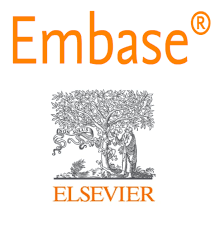Prevalence, Risk Factors, and Medical Management of Irritable Bowel Syndrome in a West Bengal: A Cross-sectional Study
Keywords:
Irritable Bowel Syndrome (IBS), morbidity.Abstract
Background: Irritable Bowel Syndrome (IBS) imposes significant morbidity worldwide, yet Indian‐state level data remain scarce. Objective: To estimate the prevalence of key risk factors for IBS and describe real world medical management patterns among adults attending a tertiary care gastroenterology clinic in West Bengal. Methods: In this cross sectional study (January–June 2025) 72 consecutive adults with chronic abdominal complaints were screened; 58 fulfilled Rome IV criteria for IBS and consented. Sociodemographic details, lifestyle and clinical risk exposures were recorded, and current treatments verified from prescriptions. Descriptive statistics and odds ratios identified factors associated with symptom severity. Results: Mean age was 39.8 ± 12.7 years; 55 % were female. Predominant IBS subtypes were mixed (38 %) and diarrhoea predominant (34 %). High perceived stress (aOR 3.1, p = 0.02) and irregular meal timing (aOR 2.4, p = 0.04) were strongest correlates of moderate to severe disease. All patients received diet and lifestyle counselling; pharmacotherapy most often included fibre supplements (53 %), antispasmodics (47 %), and probiotics (38 %). Conclusion: Psychosocial stress and meal patterns emerged as leading modifiable risk factors in this setting. A multimodal management strategy—dietary advice, fibre, antispasmodics, and gut directed psychotherapies—appears feasible but under utilised. Larger longitudinal studies are warranted.
.png)









